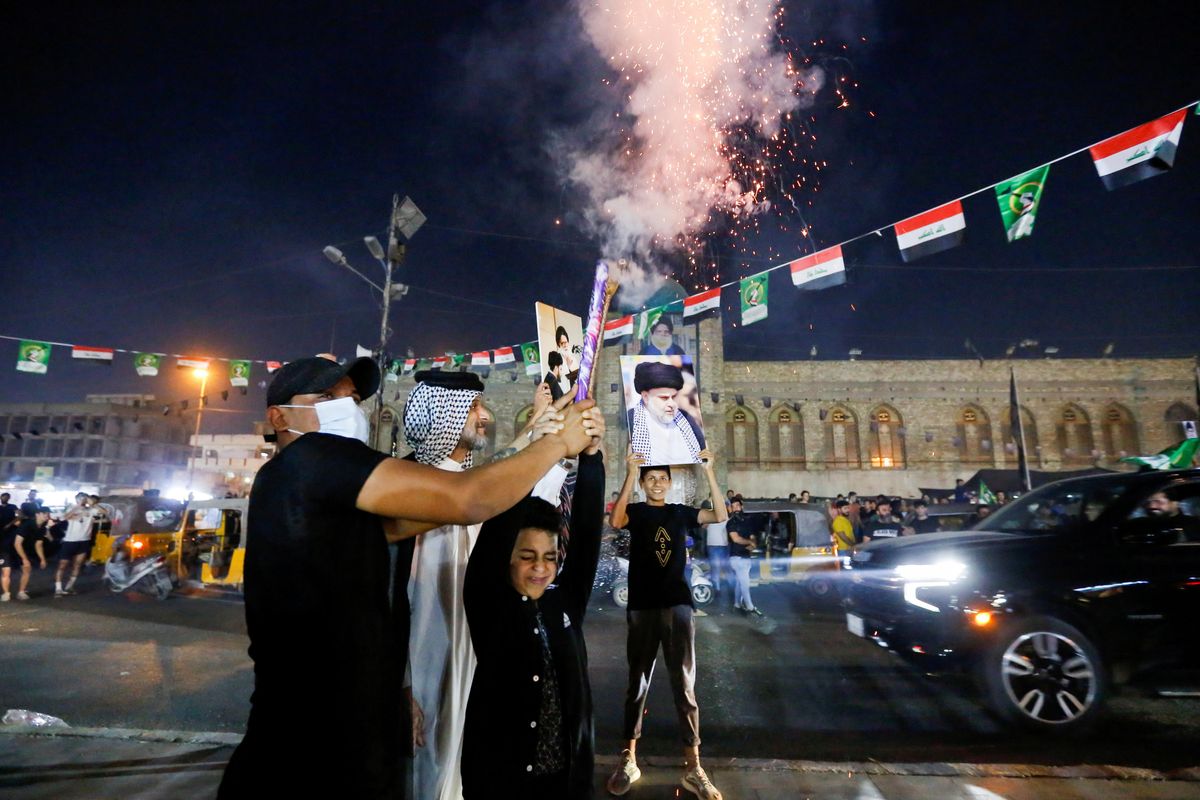Iraq's dud of an election: Just 41 percent of eligible Iraqi voters showed up at the polls this weekend, the lowest turnout in the post-Saddam Hussein era. Lack of enthusiasm for the vote – the first since mass protests in 2019 over political corruption and economic stagnation prompted a fierce crackdown – shows the depths of popular dissatisfaction with the political elite. The election came as Iraq grapples with crumbling infrastructure, a moribund economy, and ongoing sectarian strife among Shia, Sunni, and Kurdish players, with Iran meddling on behalf of the Shia groups. Preliminary results show that no candidate is on a path to win a clear majority, meaning that negotiations to choose a PM tasked with forming a government could take weeks or even months. Gulf countries and the US are hoping for a moderate who can ensure the stability of Iraq and challenge Iran's clout in the region. Iraq's current prime minister, Mustafa al-Kadhimi, in some ways fits the bill, having played a key role in mediating negotiations between longtime rivals Saudi Arabia and Iran.
Is the Czech Republic headed for a constitutional crisis? The country's billionaire populist prime minister Andrej Babiš suffered a shock defeat in elections over the weekend, edged out by a center-right "Together" coalition that agrees on little beyond the need to defeat him. But the plot thickens! The Together bloc has announced it will seek to form a government with a center-left opposition group led by the Czech Pirate party, but they can't do so officially unless they are asked to by Czech President Miloš Zeman, a staunch Babiš ally who was taken to a hospital over the weekend and remains in intensive care. Zeman said before the vote that he'd ask the party that won the most votes to form a government. That's Babiš' party, which was beaten only by a coalition of parties. It's not clear what happens next. If Zeman is out of the picture, the post-election responsibilities would fall to the speaker of parliament, but he's a member of Babiš' party too. With the current legislature's mandate set to expire in just ten days, the Czech Republic's relatively young democracy is now at risk of a serious constitutional crisis.
China-India high-altitude talks crash again: For more than a year now, China and India have been locked in a tense border standoff high in the Himalayas. The two sides even came to blows last summer; hand-to-hand combat between border guards left 20 Indians and four Chinese dead. Now each side maintains thousands of heavily armed troops, backed by artillery and air power, along the boundary. Over the weekend, commanders from each side met – for the 13th time – to hash out an agreement on who controls what. But each side accused the other of being intransigent and, for the second winter in a row, Asia's two giants will keep their forces in areas where the temperature regularly drops to -30 degrees Celsius. A new "cold war" in Asia?







